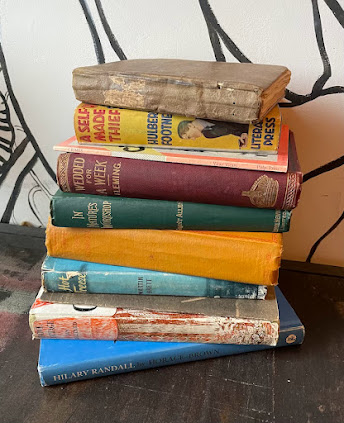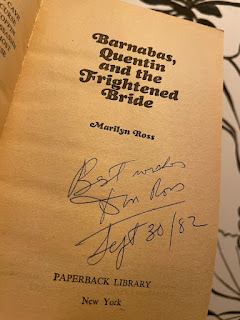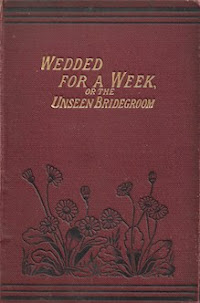Vicar Vicars [Ted Mann]
Vancouver: Pulp, 1973
62 pages
Ted Mann died earlier this month. He wrote and produced Deadwood, the greatest series in the history of television. I know it to be the best because it's my very favourite even though I don't like westerns. Hatfields & McCoys and Homeland followed. Millennium and NYPD Blue preceded. Before television Mann wrote for National Lampoon. I remember him most from the magazine's Canadian Corner. Had it not been for the Bombardier Guide to Canadian Authors, co-written with Sean Kelly and Brian Shein, my life might've taken a different path.
Crimes is a slim book and there's not a whole lot to say about it. It's rambling, contradictory, at times incoherent, and often utterly tasteless. In short, it's just what one might expect from an uncommonly clever twenty-year-old (as Mann was at the time).
Or is it what one might expect from a clergyman of uncertain age?
The setup is simple. Vicars, a vicar whose Christian name may or may not be Victor, has long devoted himself to a study of criminal life and has drawn some conclusions!
Mann plays the vicar in photos scattered within.
Garfield Holdover Truscott III is the earliest case study. A son of New York's privileged class, of "a long line of respectable non-criminals," as a child he would taunt prep school fellows that his family's money was older. Until the age of sixteen, when he shot up for the first time, Garfield lived a charmed life. Three years later, he was thrown out of the family home after passing out on a dinner plate and vomiting on his pois vertes.
When Vicars meets Garfield – street name "the Gar" – he is feeding his addiction by stealing bicycles.
The Gar provides inside info on many crimes, including a murder committed by "Stork," the inbred son of another wealthy East Coast family who murdered his wife, a "bone addict," for sleeping with another man. Remarkably, improbably, no amount of money and influence could save him from the slammer.
The Gar's fall and the Stork's murder cover the earliest pages. What follows is even more confusing, venturing of into the fantastic. Grave robbing and reanimation will figure. Vicars gives fair warning:
The rest of the book I wrote before I was a vicar and, although I have made some slight alterations it is generally intact. At the time my ambition was to be a famous writer, hence the somewhat affected style.
Is Crimes the "book" Vicars envisioned? A letter published in its pages suggests not. At the very least, it could not have been something the Vicar planned. Written by Deacon Durkin to Pulp Press, it reads in full:
It is with sadness I must report to you the death of my friend andcolleague of many years, Vicar Vickers [sic]. As I was clearing out the Vicar's desk I came upon a number of fragments which he may have intended for publication. Having discussed the matter with his housekeeper, I decided that this was indeed the case. So I forward them on to you to use at your discretion. The Vicar often told me I should try my hand at writing and I have taken the liberty of adding and amending certain passages in the work with an eye to cohesiveness. The majority of the work is the Vicar's, however, and I sincerely hope he gains some of the same and wealth he so richly deserved when he was alive, now that he is dead.
The final four pages take the form of three unattributed newspaper stories, the first being:
ALCOHOLIC DWARF SAYS "I USE PEOPLE'S SYMPATHY TO GET MONEY TO BUY LIQUOR"
The last is prescient:
NAZI WAR CRIMINALS ON CANADA'S WEST COAST
I still want to be the best I can be, but any understanding of the best has changed considerably. It is enough for me now to walk close to God, and perhaps someday, though I blush to say it, to achieve beatification. Remember, dear reader, you are always being tested.
Trivia: Ted Mann's Hollywood Reporter obit, short on detail while at the same time the most detailed, covers the entirety of his youth in one sentence: "Born on Oct. 24, 1952, Mann worked for a magazine in Canada before becoming a writer and editor at National Lampoon."
I'm guessing that early magazine was CLIK, which is credited with providing the fourteen photos used on the cover and interior. Coincidentally, in 1994, the year I first moved to Vancouver – Ted Mann's hometown! – I was a contributor to the short-lived CD-ROM magazine CLIK!
Remember CD-ROM magazines? For eight months they were really something.
I've not been able to find trace of CLIK or CLIK! online. I have at least one copy of the latter somewhere in storage. Because it wasn't compatible with Macs it's still in its shrink wrap.
More trivia: Though Crimes takes place in New York City, Vancouverites will recognize their city's iconic Dominion Trust Building in this photo.
Object: A slim digest-size paperback, Crimes is the eighth in the publisher's Pulp Content series, sandwiched between Mark Young's Brother Ignatius of Mary (#7) and Minimanual of the Urban Guerrilla by Carlos Marighella (#9). The final page pushes Pulp Content title #3:
Rick Torch was in fact poet and anthologist Barry McKinnon (1944-2023), whose 1981 collection of verse The The was shortlisted for a Governor General's Award.
Access: My copy was purchased two years ago from a from a UK bookseller in Winterton, Lincolnshire. Price: $£6.50. As I write, six copies are listed for sale online. Curiously the vast majority are being flogged by English and American booksellers. At £6.99, the least expensive is on offer from the very same man in Winterton, and features the very same compliments stamp. As far as I'm concerned, this is the one to buy.
The most expensive, US$29.75, is listed by a Vancouver, Washington bookseller who dares charge a further US$26.99 to ship a light as air 5x7¼x⅛ book that is easily slipped into a small manila envelope.
Related posts:
B is for the Bombardiar Guide to Canadian Authors
Z is for Zink, Lubor J.
The Dustiest Bookcase: E is for Eaton
































